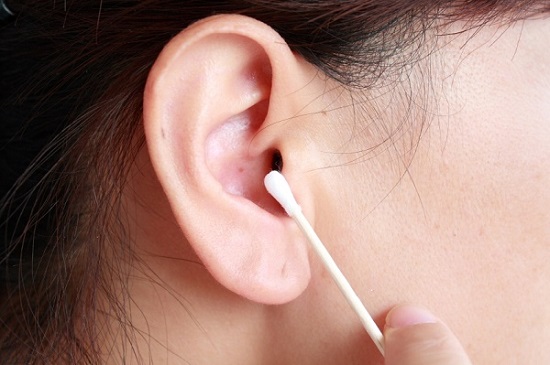
You’ve most likely never noticed, but on the back of any package of cotton swabs there’s a written warning that is some version of this:
“Caution: Do not enter the ear canal. Penetrating the ear canal could lead to injury.”
If you have a package of cotton swabs nearby, go take a look for yourself.
The thing is, it’s not just physicians, audiologists, and hearing professionals who advise against the use of cotton swabs to clean the ears—even the producers of cotton swabs think it’s a bad idea!
But why, if the use of cotton swabs is such a widely used method of ear cleaning, should it be avoided? Why are the manufacturers so adamant that you don’t use their own product in this way?
We’re glad you asked: the following are four good reasons to never use cotton swabs to clean your ears again.
1. Earwax is invaluable
Earwax has a variety of beneficial functions apart from being gross. It has antibacterial qualities to prevent infections, it functions as an insect repellent to keep bugs out of your ears, and it helps to lubricate the ear canal, which prevents dried out, itchy skin.
2. Cotton Swabs push earwax up against the eardrum
Using cotton swabs is actually dangerous. When you force any foreign object into the ear canal, you’re shoving most of the earwax up against the eardrum. This can rupture the eardrum or can cause an impaction that will bring about hearing loss.
3. Earwax removes itself
The ear is structured to eliminate its own earwax. The natural movements of your jaw—from talking, eating, or yawning—will move the earwax to the outer ear. All that’s called for from you is normal showering and cleaning the outer ear with a washcloth.
4. Excessive earwax removal causes dryness
Earwax has lubricating and antibacterial properties, so if you eliminate too much, you’ll experience a dry, itchy sensation and will be more predisposed to infections.
What you can do instead
There are a variety of commercial (and do-it-yourself) solutions you can use to flush out your ears, which is considerably less dangerous than inserting foreign objects into the ear canal. But bear in mind, if you’re having problems with surplus earwax or you’re having difficulties hearing, it’s usually best to seek the advise of a hearing professional.
Hearing professionals are extensively trained in the anatomy and physiology of the ear, and can diagnose any ailments you may have with earwax buildup or hearing loss. It’s always a wise decision to rule out more significant problems, and if cleaning is all that’s required, you’ll get the satisfaction of knowing that it’s being done properly.
